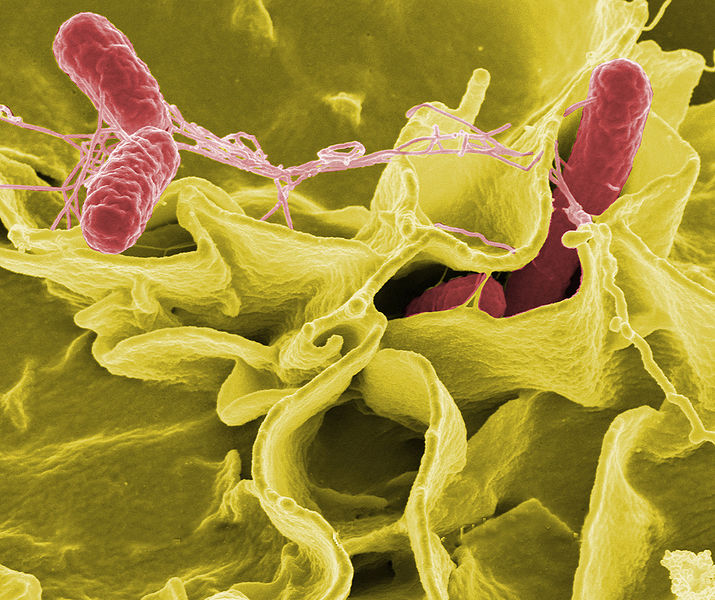Salmonella bacteria colonize cancer cells and thus activate the immune system. On the use of bacteria as a means of fighting cancer

Dror Bar-Nir Galileo
Melanoma is a cancerous disease that usually originates from the pigment cells in the skin (melanocytes), and if not treated at an early stage, it causes death in agony. Cancer cells, i.e. cells that multiply without control, develop in our body with a relatively high frequency. But warning markers (antigens characteristic of the tumor) are produced in these cells and leave them through a protein characteristic of junctions, known as connexin 43. The warning signs reach antigen-presenting cells, and these "alert" the immune system cells that activate the self-destruction systems of the damaged cells. In this way, the cancerous tumor is suppressed and/or destroyed.
Melanoma cells have almost no connexin 43. Because of this, there is no release of markers, the immune system is not alerted, does not react to the tumor and allows it to thrive, grow and spread to the other organs of the body.
Collaboration of the research group led by Maria Rescigno, from the European Institute for Cancer Research in Milan, Italy, with the research group led by Francesca Avogadri, from the Sloan-Kettering Cancer Research Center in New York in the United States The alliance may promote treatment against the disease, with the help of Salmonella typhimurium bacteria.
The bacteria are attracted to the tumor area
S. typhimurium bacteria, which cause typhoid in mice and intestinal disease in humans, have a special feature that has been known for about 150 years - they tend to colonize cancer cells: when they inhabit a person or other animal suffering from cancer, the main settlement and subsequent reproduction of the bacteria occurs in the tumor area .
The researchers injected weakened salmonella bacteria (which lost their ability to cause the typical diseases) into mice with melanoma, and at the same time added bacteria to a culture of human melanoma cells. In both cases, the infection with Salmonella caused an increase in the amount of connexin 43 in the cancer cells. The immune system eliminated the tumor in the injected mice and they recovered. The researchers hope that the increase in the amount of connexin observed in the human melanoma cell culture will also occur in the experiments that will be performed, after receiving the appropriate approvals, also in humans with melanoma and that this will enable the destruction of the tumor.
This is not the first time that bacteria have been used to stimulate an immune response against cancer cells. Already in the last century they injected tuberculosis bacteria (Mycobacterium tuberculosis, of the BCG strain, which was used for vaccination against the disease) to help deal with bladder cancer. The inflammation created in the bladder due to the bacterial infection targeted the immune system cells, which identified the cancer cells and destroyed them.

2 תגובות
makes the most sense. The cell is simply weak and then it attracts the bacteria.
It could be that the bacteria recognize the weakness of the cells due to the lack of a certain protein or chemical marker (could be the same protein itself connexin) which causes them to settle in the same place because biologically there they will be safe from the immune system.